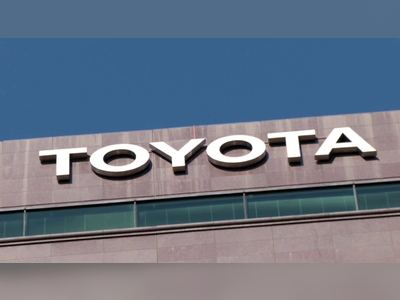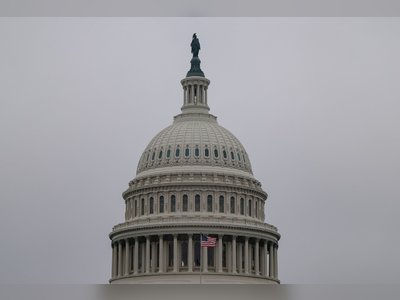The Backlash Against Woke Culture: Corporate America's 180-Degree Turn
The decisions of Walmart, Ford, and Toyota signal a corporate pivot that is reshaping the landscape of American business. The question remains: Will this retreat from progressive ideals set the stage for a return to corporate responsibility, or is it merely a retreat into political convenience? Time will tell, but the stakes are high. For corporate America, the road ahead requires navigating these competing values with care, integrity, and a clear-eyed understanding of the social implications of their choices.
In the wake of Donald Trump’s election victory in 2024, corporate America is undergoing a seismic shift, one that is rewriting the playbook on diversity and inclusion.
For years, large corporations like Walmart, Ford, and Toyota embraced Diversity, Equity, and Inclusion (DEI) programs, responding to societal calls for systemic change in the aftermath of George Floyd's tragic death.
But as the conservative tide swells, these same companies are now retreating from the very initiatives that were once seen as progressive pillars of corporate responsibility.
Walmart, the world’s largest private employer, has taken the most dramatic step, publicly announcing that it will stop all DEI initiatives, cease considering race and gender in vendor selections, and abandon a $100 million fund meant to address systemic disparities in education, health care, and criminal justice for African Americans.
This follows a broader trend, with companies like Toyota and Ford also scaling back or removing their involvement in DEI programs and LGBTQ+ rights initiatives.
This reversal is not just a business decision—it is a reaction to the growing conservative movement that has been galvanized by the rise of figures like Trump, who openly campaigned against the so-called “woke culture.”
Many in corporate America now seem to believe that supporting DEI policies, or aligning with progressive movements, is not only alienating a substantial portion of their customer base but also undermining the meritocratic values they claim to uphold.
In this shifting landscape, the question arises: What does this all mean for the future of corporate responsibility, diversity, and even the very notion of social justice in the marketplace?
The Rise of DEI: A Corporate Response to Racial Injustice
The DEI movement took hold in the corporate world following the killing of George Floyd by a Minneapolis police officer in 2020.
In the years that followed, a surge of public outrage sparked many corporations to implement programs aimed at addressing racial and gender inequalities, ensuring equal opportunities, and creating more inclusive workplaces.
Companies adopted policies that focused on increasing the representation of minorities in senior roles, supported LGBTQ+ initiatives, and sponsored events like Pride Parades to demonstrate their commitment to social change.
Walmart’s 2021 decision to dedicate $100 million to address the systemic issues affecting African American communities in education, health, and the criminal justice system seemed like a breakthrough moment for corporate America.
These moves were part of a broader trend where many companies sought to showcase their commitment to diversity and inclusion, often accompanied by marketing campaigns meant to resonate with socially conscious consumers.
A Conservative Backlash: The Emergence of a New Corporate Strategy
However, with the rise of the conservative movement and the success of Trump’s rhetoric against the Woke agenda, there has been a marked shift in corporate behavior.
The backlash, led by conservative activists like Robby Starbuck, has focused on dismantling what they perceive as overreaching, unnecessary, or politically charged corporate involvement in social issues. They argue that DEI policies, rather than helping minorities, actually create new divisions and foster resentment.
By the time of the 2024 election, many corporate giants—Walmart included—began to shift away from DEI, signaling that they were no longer willing to align themselves with progressive values at the cost of alienating a conservative-leaning customer base.
This retreat has been accompanied by a broader conservative campaign against transgender rights and LGBTQ+ inclusion, with some companies pulling their support for Pride events and transgender rights.
Walmart’s announcement to not renew the DEI fund and stop considering race and gender in vendor decisions is a direct response to these political pressures. The company has also vowed to take a closer look at events it sponsors, ensuring that it does not support content deemed inappropriate for children, such as sexually explicit drag shows.
For many conservatives, the decision to scale back DEI initiatives in favor of returning to “core business” practices is a sign of corporate America’s “awakening.”
This shift, they argue, is about “reclaiming sanity” in corporate culture and refocusing on what they see as the fundamental purpose of business—profit and performance—not political correctness.
A Dangerous Precedent: The Impact on Diversity and Inclusion
But not everyone sees this corporate retreat as a positive development. Activists and those in favor of DEI policies argue that it marks a step backward in the fight for equality. By pulling back from these initiatives, companies are not only abandoning their commitments to racial and gender equity but also sending a dangerous message that equality is no longer a priority.
Critics point to the harm that could come from discontinuing diversity programs that have made strides in elevating underrepresented groups.
The success of DEI initiatives in breaking down barriers in industries historically dominated by white men is undeniable, yet now many companies are throwing those gains into question.
The concern here is not just about corporate values, but about the potential for long-term societal harm.
Removing DEI programs in favor of appeasing a vocal conservative minority risks stifling progress in areas that need urgent attention. Racial and gender disparities continue to persist in many sectors, and by reversing these initiatives, corporations risk regressing to an era of unchecked discrimination.
Corporate America at the Crossroads
The broader question now is whether this movement away from DEI is indicative of a larger shift in how corporate America approaches social responsibility. As Walmart, Ford, and Toyota make these drastic changes, other businesses are likely to follow suit—especially those that rely on working-class white Americans or traditional conservative values.
But for companies with a more liberal or progressive workforce, or those that cater to younger, socially conscious consumers, abandoning DEI initiatives could prove to be a costly misstep. Surveys show that a majority of Americans still view diversity initiatives in a positive light, with 60% of the population in favor of DEI in the workplace.
But the pushback is gaining momentum, particularly among those who feel excluded by what they perceive as the overreach of progressive policies.
Looking Ahead: The Future of Corporate Responsibility
So where do we go from here? As corporate America grapples with these shifting dynamics, it must navigate a complex terrain where competing ideologies and values collide. The challenge for businesses now is finding a way to balance profit with social responsibility.
It’s not enough to simply retreat from controversial policies or cater to one segment of the population. Companies need to think long-term about their role in society, and how they can contribute to a more inclusive and just world, even if it’s uncomfortable.
In this age of political polarization, businesses must carefully consider how to engage with social movements—whether it’s DEI, LGBTQ+ rights, or gender equality—without becoming entangled in partisan battles.
The future of corporate America may depend on its ability to evolve beyond the culture wars and prioritize genuine societal progress over short-term political gain.
For years, large corporations like Walmart, Ford, and Toyota embraced Diversity, Equity, and Inclusion (DEI) programs, responding to societal calls for systemic change in the aftermath of George Floyd's tragic death.
But as the conservative tide swells, these same companies are now retreating from the very initiatives that were once seen as progressive pillars of corporate responsibility.
Walmart, the world’s largest private employer, has taken the most dramatic step, publicly announcing that it will stop all DEI initiatives, cease considering race and gender in vendor selections, and abandon a $100 million fund meant to address systemic disparities in education, health care, and criminal justice for African Americans.
This follows a broader trend, with companies like Toyota and Ford also scaling back or removing their involvement in DEI programs and LGBTQ+ rights initiatives.
This reversal is not just a business decision—it is a reaction to the growing conservative movement that has been galvanized by the rise of figures like Trump, who openly campaigned against the so-called “woke culture.”
Many in corporate America now seem to believe that supporting DEI policies, or aligning with progressive movements, is not only alienating a substantial portion of their customer base but also undermining the meritocratic values they claim to uphold.
In this shifting landscape, the question arises: What does this all mean for the future of corporate responsibility, diversity, and even the very notion of social justice in the marketplace?
The Rise of DEI: A Corporate Response to Racial Injustice
The DEI movement took hold in the corporate world following the killing of George Floyd by a Minneapolis police officer in 2020.
In the years that followed, a surge of public outrage sparked many corporations to implement programs aimed at addressing racial and gender inequalities, ensuring equal opportunities, and creating more inclusive workplaces.
Companies adopted policies that focused on increasing the representation of minorities in senior roles, supported LGBTQ+ initiatives, and sponsored events like Pride Parades to demonstrate their commitment to social change.
Walmart’s 2021 decision to dedicate $100 million to address the systemic issues affecting African American communities in education, health, and the criminal justice system seemed like a breakthrough moment for corporate America.
These moves were part of a broader trend where many companies sought to showcase their commitment to diversity and inclusion, often accompanied by marketing campaigns meant to resonate with socially conscious consumers.
A Conservative Backlash: The Emergence of a New Corporate Strategy
However, with the rise of the conservative movement and the success of Trump’s rhetoric against the Woke agenda, there has been a marked shift in corporate behavior.
The backlash, led by conservative activists like Robby Starbuck, has focused on dismantling what they perceive as overreaching, unnecessary, or politically charged corporate involvement in social issues. They argue that DEI policies, rather than helping minorities, actually create new divisions and foster resentment.
By the time of the 2024 election, many corporate giants—Walmart included—began to shift away from DEI, signaling that they were no longer willing to align themselves with progressive values at the cost of alienating a conservative-leaning customer base.
This retreat has been accompanied by a broader conservative campaign against transgender rights and LGBTQ+ inclusion, with some companies pulling their support for Pride events and transgender rights.
Walmart’s announcement to not renew the DEI fund and stop considering race and gender in vendor decisions is a direct response to these political pressures. The company has also vowed to take a closer look at events it sponsors, ensuring that it does not support content deemed inappropriate for children, such as sexually explicit drag shows.
For many conservatives, the decision to scale back DEI initiatives in favor of returning to “core business” practices is a sign of corporate America’s “awakening.”
This shift, they argue, is about “reclaiming sanity” in corporate culture and refocusing on what they see as the fundamental purpose of business—profit and performance—not political correctness.
A Dangerous Precedent: The Impact on Diversity and Inclusion
But not everyone sees this corporate retreat as a positive development. Activists and those in favor of DEI policies argue that it marks a step backward in the fight for equality. By pulling back from these initiatives, companies are not only abandoning their commitments to racial and gender equity but also sending a dangerous message that equality is no longer a priority.
Critics point to the harm that could come from discontinuing diversity programs that have made strides in elevating underrepresented groups.
The success of DEI initiatives in breaking down barriers in industries historically dominated by white men is undeniable, yet now many companies are throwing those gains into question.
The concern here is not just about corporate values, but about the potential for long-term societal harm.
Removing DEI programs in favor of appeasing a vocal conservative minority risks stifling progress in areas that need urgent attention. Racial and gender disparities continue to persist in many sectors, and by reversing these initiatives, corporations risk regressing to an era of unchecked discrimination.
Corporate America at the Crossroads
The broader question now is whether this movement away from DEI is indicative of a larger shift in how corporate America approaches social responsibility. As Walmart, Ford, and Toyota make these drastic changes, other businesses are likely to follow suit—especially those that rely on working-class white Americans or traditional conservative values.
But for companies with a more liberal or progressive workforce, or those that cater to younger, socially conscious consumers, abandoning DEI initiatives could prove to be a costly misstep. Surveys show that a majority of Americans still view diversity initiatives in a positive light, with 60% of the population in favor of DEI in the workplace.
But the pushback is gaining momentum, particularly among those who feel excluded by what they perceive as the overreach of progressive policies.
Looking Ahead: The Future of Corporate Responsibility
So where do we go from here? As corporate America grapples with these shifting dynamics, it must navigate a complex terrain where competing ideologies and values collide. The challenge for businesses now is finding a way to balance profit with social responsibility.
It’s not enough to simply retreat from controversial policies or cater to one segment of the population. Companies need to think long-term about their role in society, and how they can contribute to a more inclusive and just world, even if it’s uncomfortable.
In this age of political polarization, businesses must carefully consider how to engage with social movements—whether it’s DEI, LGBTQ+ rights, or gender equality—without becoming entangled in partisan battles.
The future of corporate America may depend on its ability to evolve beyond the culture wars and prioritize genuine societal progress over short-term political gain.












